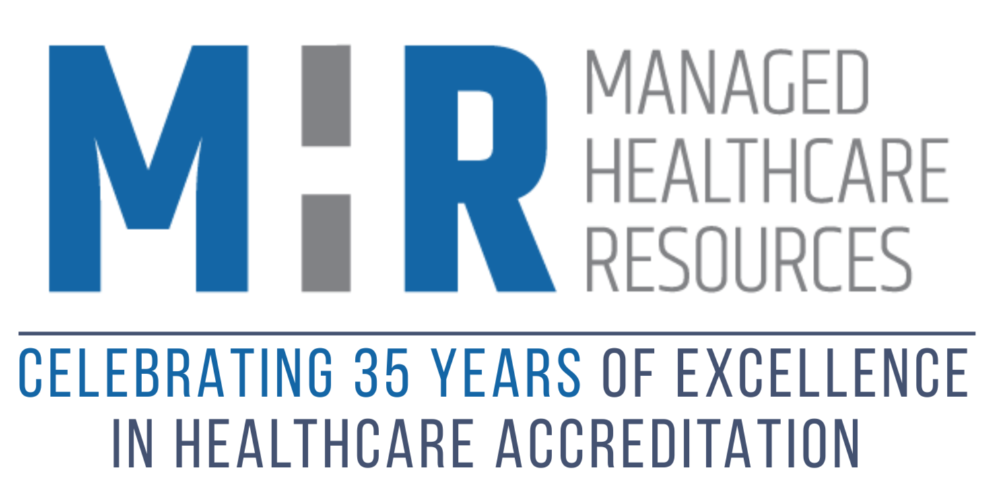
During a recent MHR team meeting, we looked back over the year on challenges encountered by our clients before engaging with MHR. As we conducted our gap assessments, we found gaps of understanding NCQA’s requirements for analyses, policies (data sources and look-back periods), delegation agreements, and system controls. Two root causes were common:
- lack of continuity of persons with NCQA expertise within the organization and,
- lack of detailed understanding of NCQA standards among organizations’ staff.
How do organizations get into the unenviable position of putting their NCQA accreditation status at risk? Some of what we saw were:
- Accountability by executive leadership for meeting NCQA requirements was not prioritized.
- Succession plans for NCQA project leads were not in place.
- High employee turnover led to a lack of bench strength.
- Internal resources could not handle complex problems related to NCQA administrative procedures.
- Staff were unable to fully interpret the standards or failed to recognize detailed requirements.
- Organizations lacked or fell behind on NCQA training.
At MHR, our experience shows that when organizations invest in training on NCQA, they invest in a high-value strategy that engages staff to apply NCQA standards as best practices and perform at higher levels that improve quality.
As an MHR client, you benefit from our wide range of available training sessions delivered at the right time, to the right audiences, at the right place, and targeted to your specific needs.
How do organizations benefit from MHR training?
Staff learn:
- NCQA standard applications specific to their NCQA program
- High-priority requirements and preventing common errors
- Nuances of important NCQA terminology
- Need for integrating standards across the enterprise
Organizations can experience:
- More innovative interventions and higher-quality outcomes
- More ensured compliance with NCQA requirements
- Lower costs from more efficient operations
- Expansion of staff who are proficient in NCQA standards
- Staff operating at the same level including those with more seasoned staff who may have varying levels of understanding of the standards
Organizations new to NCQA and accreditation, or those with high turnover of staff, can especially benefit from team learning on a focused topic or set of standards. Standards on Utilization Management (UM) and Delegation are one example. Teams of UM line staff, managers, and medical directors can learn together and ask questions specific to their roles. Additionally, organizations that may delegate UM for medical, behavioral health, or pharmacy can invite other specialists such as pharmacists or contracting specialists to participate.
Attendees of our training sessions can ask questions of our Consultants and gain unique insight from their experience with NCQA, including the perspective of the surveyors, as MHR has a high percentage of Independent Consultants who are NCQA surveyors. MHR Consultants do not just reiterate the standards that everyone can easily read on their own. They apply real-world experience and knowledge from their work life prior to consulting, along with consulting experience across the US in working with a myriad of organizations and lines of business. They know common issues and misunderstanding of standards and share different ways of meeting the standards along with stories and cautionary tales of lessons learned by other organizations through their survey process.
What type of training should you schedule?
We help you customize your training sessions based on your needs, either when you onboard as an MHR client or during our ongoing consultation.
Training sessions that are common or apply to most organizations regardless of size or program are:
- Analysis: Includes use of MHR’s Analysis template for a quality improvement project
- Annual Standard Changes: Includes highlights of NCQA’s updates and clarifications, with insight on what NCQA will look for
- Basics of NCQA Accreditation: Includes oversight of NCQA’s structure and procedures – a “must” for all leaders
- Delegation: Includes discussion on delegates versus vendors, preassessment, expectations for ongoing assessments, systems controls requirements for delegates, when automatic credit may be obtained, and delegation agreements
Training targeted to specific standards is helpful for staff who work in those areas or with cross-functional teams, including:
- Denials and Appeals
- Complex Case Management
- Health Equity
- LTSS Distinction or CM-LTSS
- Member Experience
- Network Management
- Population Health Management
- Quality Management and Improvement
- System Controls
- Utilization Management
When training is needed for specific derivative NCQA programs, MHR offers sessions on:
- Credentials Verification Organization (CVO)
- Utilization Management/Credentialing/Provider Network (UM/CR/PN)
- Health Information Products (HIP)
- Health Plan Accreditation (HPA)
- Managed Behavioral Healthcare Organization (MBHO)
- Population Health Program (PHP)
- Wellness and Health Promotion (WHP)
Sessions on specific standards and programs are often combined with training on Analysis and/or Delegation which are more in-depth to those complex and frequently problematic areas.
We began our three-part discussion on the value of NCQA Accreditation because of hearing some organizations questioning the costs of accreditation as decisions on expenditures are made throughout the healthcare industry. We pointed out the following:
- NCQA standards fit within the quality framework to improve healthcare quality and member experience, reduce costs, and promote provider and team well-being. This is also known as the Quadruple Aim, which many organizations ascribe to.
- NCQA Seals symbolize an organization's commitment to healthcare quality for its members.
- NCQA standards are evidence-based best practices that help drive improved quality and innovation.
- Investing in staff training on NCQA is a value-added strategy that helps reduce risk to the organization.
In each section, we offered how to say it to help staff verbalize the benefits of NCQA Accreditation and suggested reminders or calls to action.
With this said, MHR’s team of Independent Consultants are experts in preparing organizations for their NCQA survey. We know that NCQA standards are complex, and many connections must be made to understand the scope of each standard and how they interrelate. Every word is important, and words have specific meanings in the NCQA world.
MHR knows the value of NCQA as we live it, day in and day out. Our team adds value to your organization by guiding you, side-by-side, throughout the survey preparation process to achieve that coveted NCQA Seal.
How to say it?
Training on NCQA is an investment in our staff that increases the organization's value.
Call to Action:
- Budget for annual training needs for all levels of the organization to maintain NCQA readiness
- Contact MHR on an array of NCQA Training offerings



